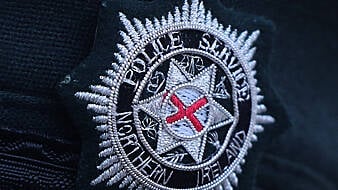Calves are being transported from Ireland by sea to mainland Europe in a manner that "amounts to animal cruelty" and is in breach of EU regulations on animal welfare, the High Court has heard.
The claim has been made by lawyers acting for Ethical Farming Ltd, a non-governmental organisation that campaigns against animal cruelty and promotes ethical and sustainable farming methods over the live export of unweaned calves.
The group has brought a High Court challenge against the Minister for Agriculture and the State over concerns that such calves are being allowed go without feed or liquids on sea journeys to continental Europe that can last for over 24 hours.
Journey time
Ethical Farming says the journeys approved by the Minister can take up to 28 hours to complete.
Such journeys, taken by firms involved in the transportation of livestock, need to be formally approved by the Minister before the can take place.
The group claims that by permitting these journeys the Minister and the State has in place a policy which has the effect of subjecting the calves to undue suffering and injury.
The group says that the Minister has confirmed to it that during these journeys the calves cannot be fed or given liquid or water individually.
EU welfare regulations
They say this amounts to breaches of EU animal welfare regulations.
The group also claims that no adequate information is being kept or provided to the Minister by transporters regarding the time of departure from where the calves are first loaded onto lorries,
The keeping of proper and accurate logs is mandatory under EU law, the group claims.
The group made requests under freedom of information requests for journey logs from the Minister to help the NGO determine if such journeys are in compliance with EU regulations.
However, the information it received about multiple journeys were incomplete, and not all of the logs it requested were provided, it claims.
An expert report submitted in support of Ethical Farming's claim stated that unweaned calves might tolerate at most eight hours without receiving milk, resulting in them becoming hungry, distressed and suffering.
Journeys on transport vehicles, the report adds can cause calves to become more dehydrated and use up more energy than compared to when they are in a farm setting.
Lengthy journeys can lead to higher mortality rates, and disease.
Judicial review
The court heard that the Department has said in correspondence that its regulations concerning the transport and movement of animals complies with EU regulations.
As a result of the alleged failure to properly adhere to EU Council Regulations on animal protection the group has brought the proceedings.
In its judicial review action Ethical Farming, seeks various reliefs including an order that the Minister complies with the EU regulation on animal protection.

It also seeks a declaration that by allowing unweaned calves to be transported by sea to continental Europe the Minster is pursuing a policy and practice that causes or is likely to cause injury and suffering to the animals in breach of EU regulations.
The matter came before Mr Justice Charles Meenan, on an ex-parte basis, during Monday's sitting of the High Court judicial review list.
The judge directed that the application for permission to bring the challenge be made on notice to, or in the presence of the State parties.
The matter will return before the courts in October.







